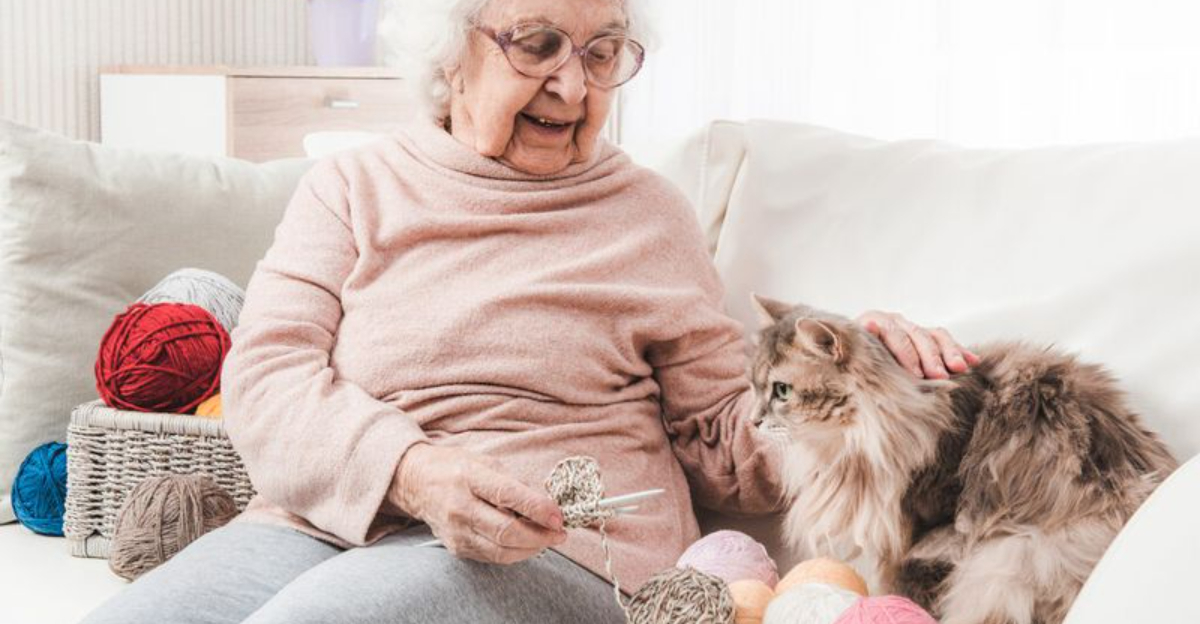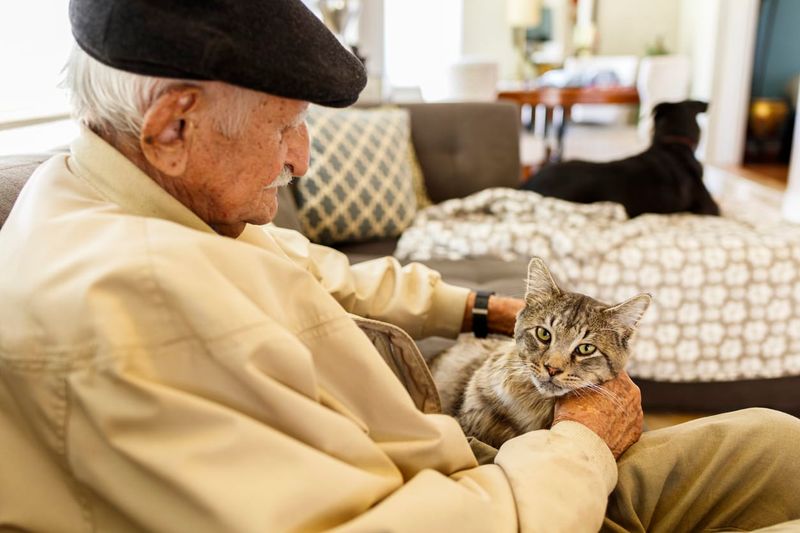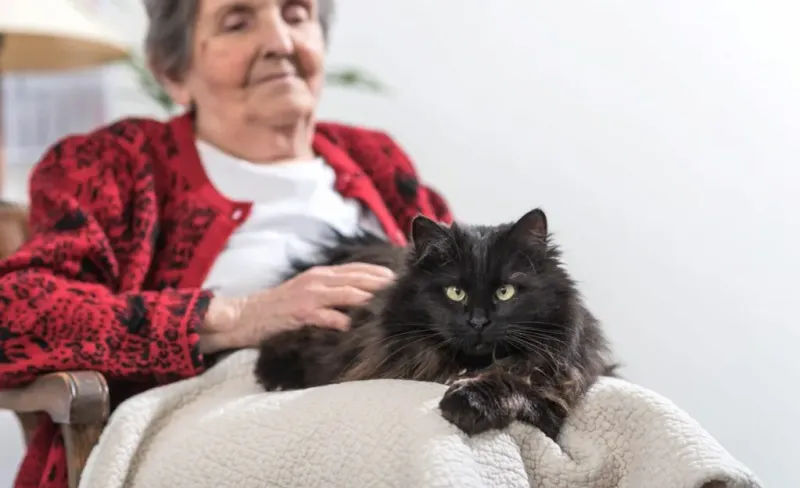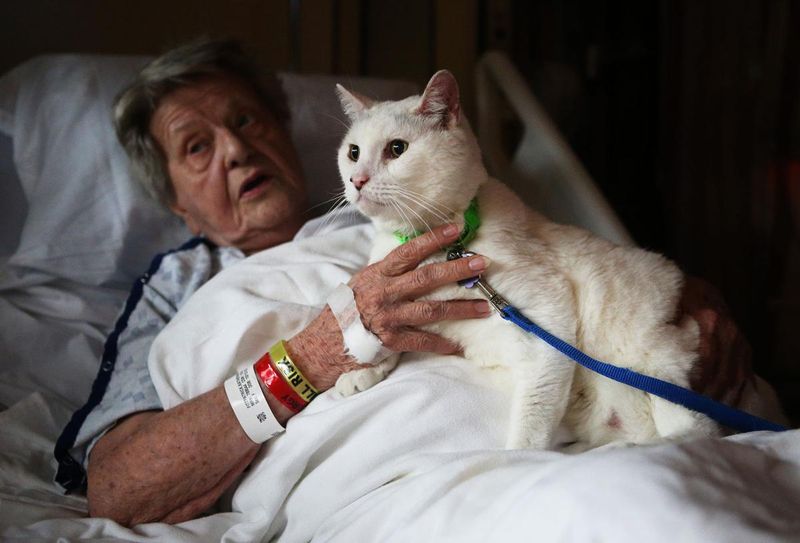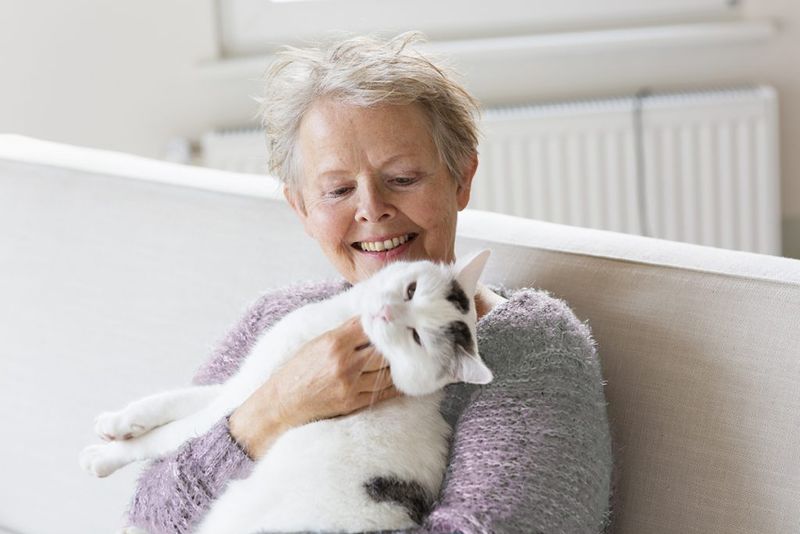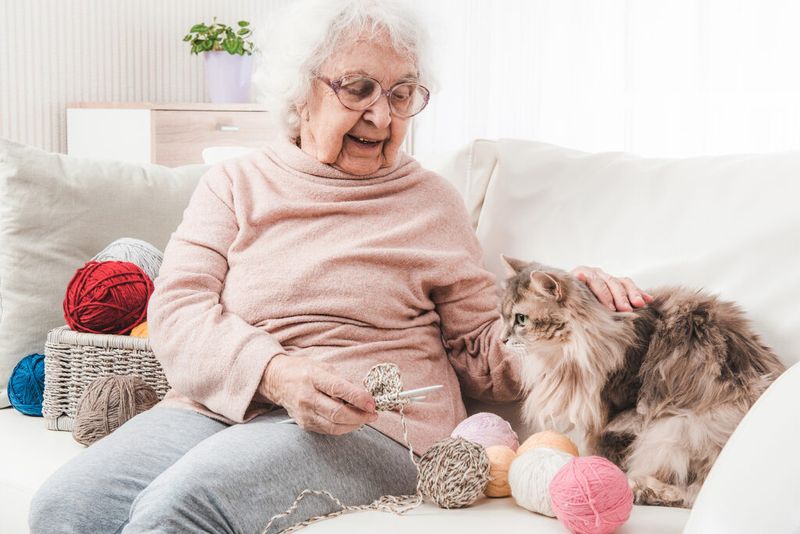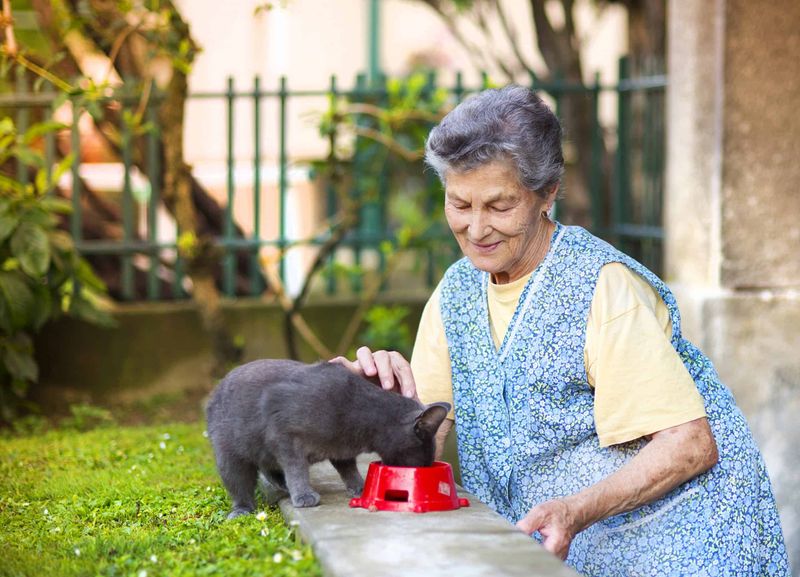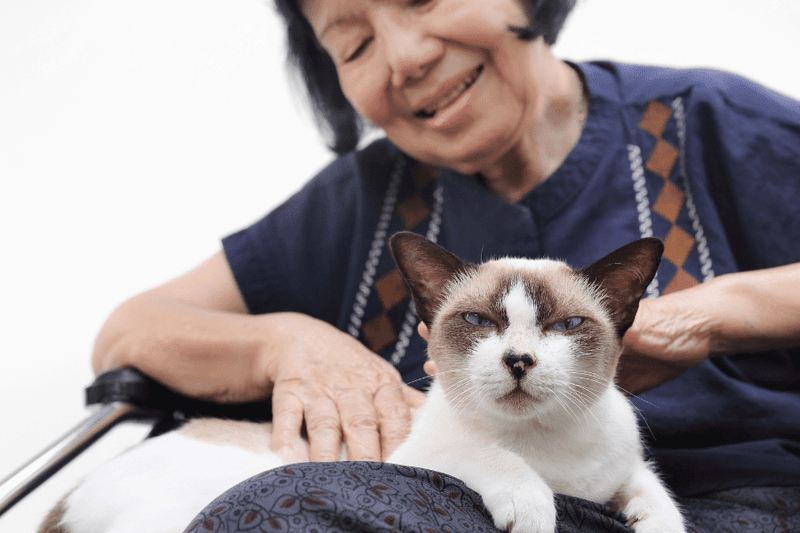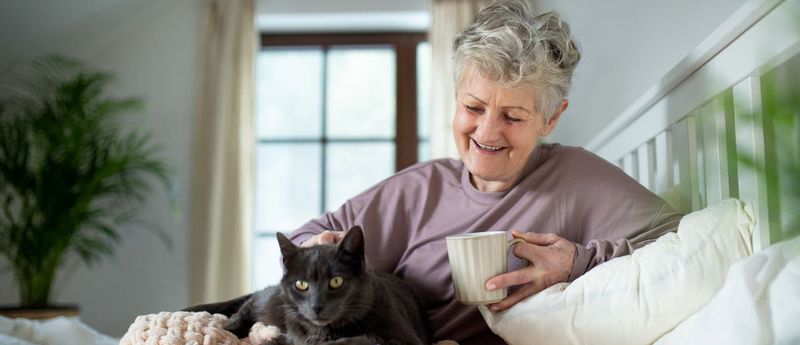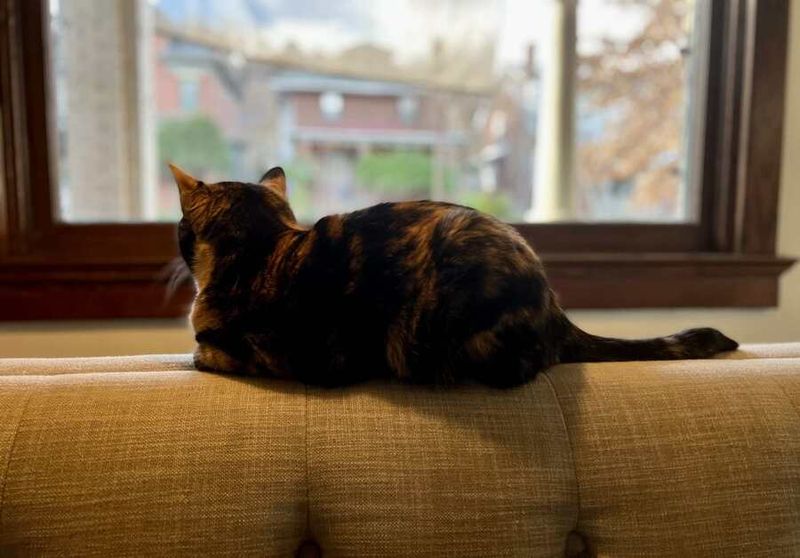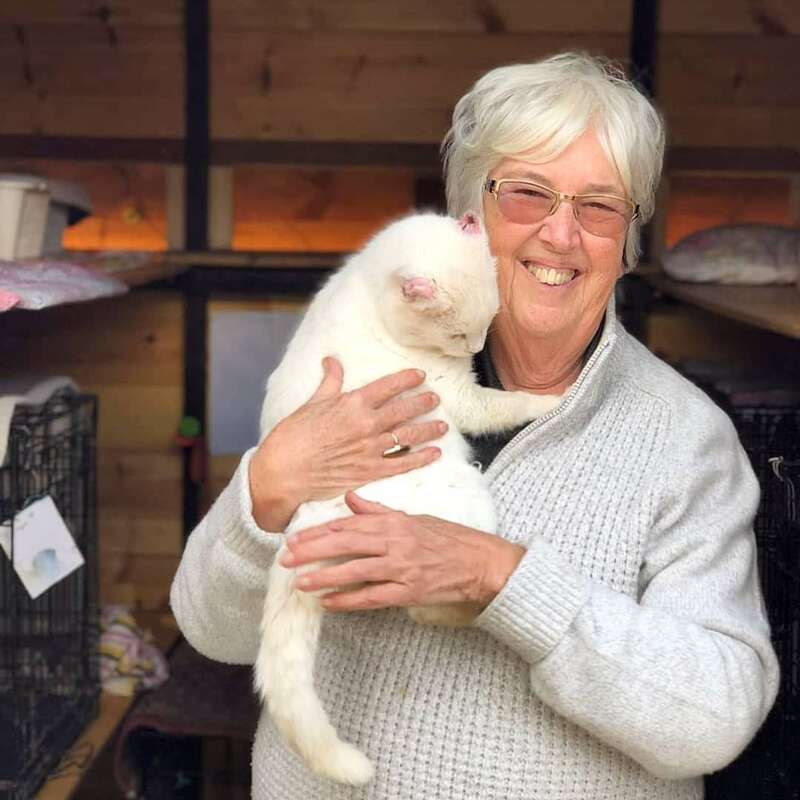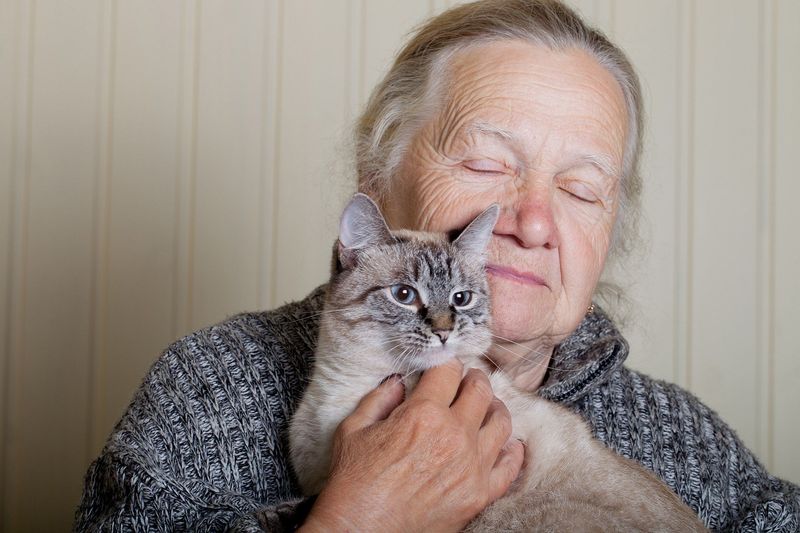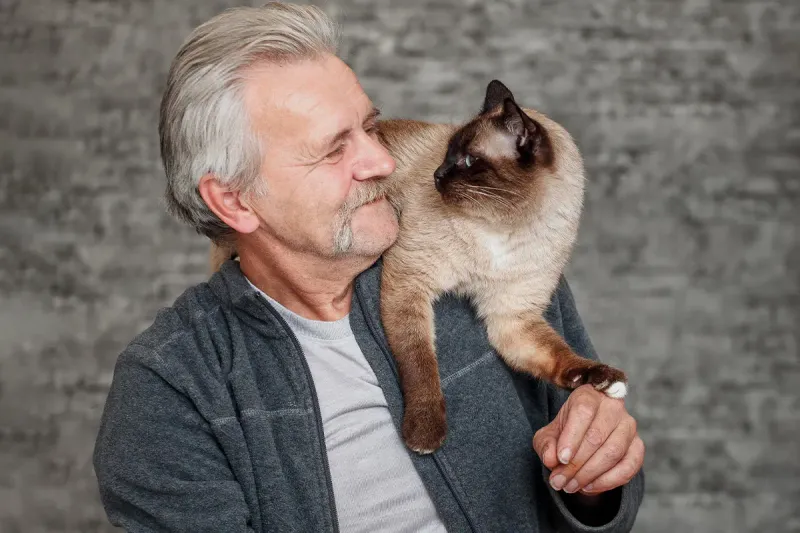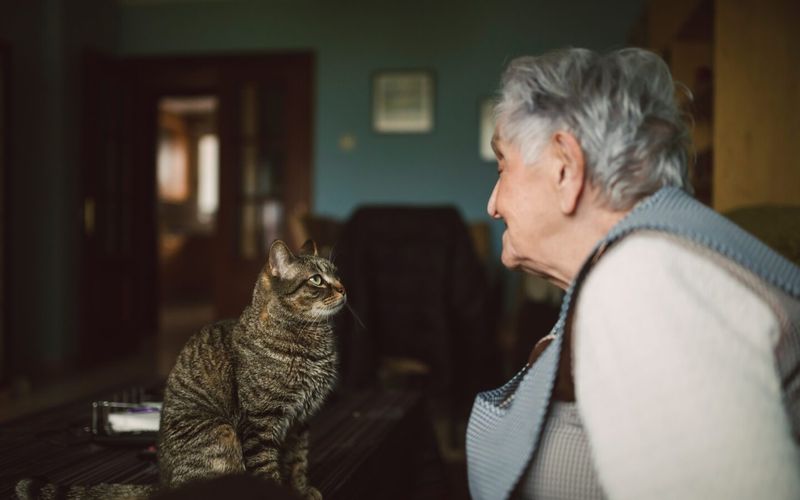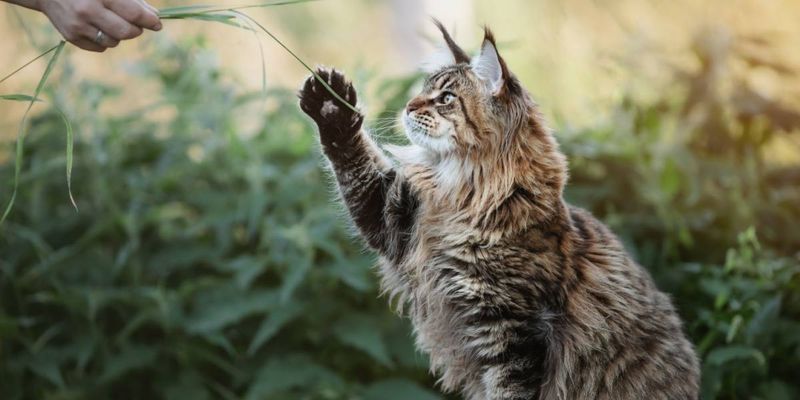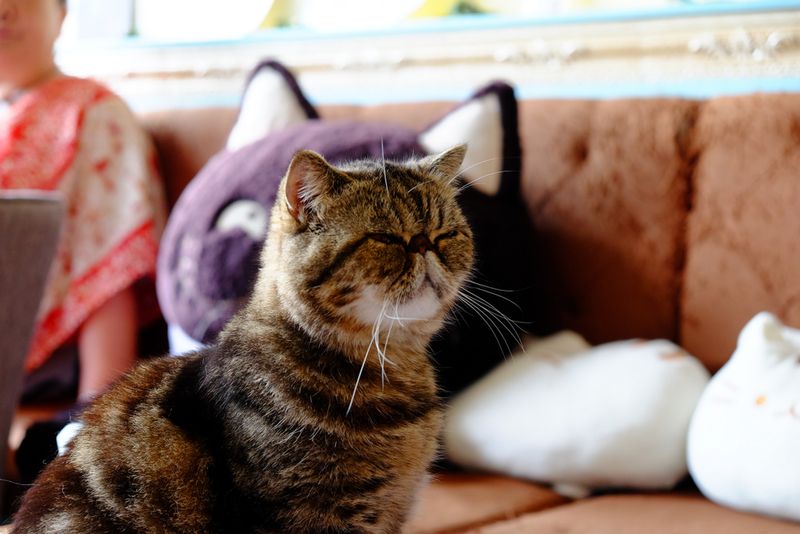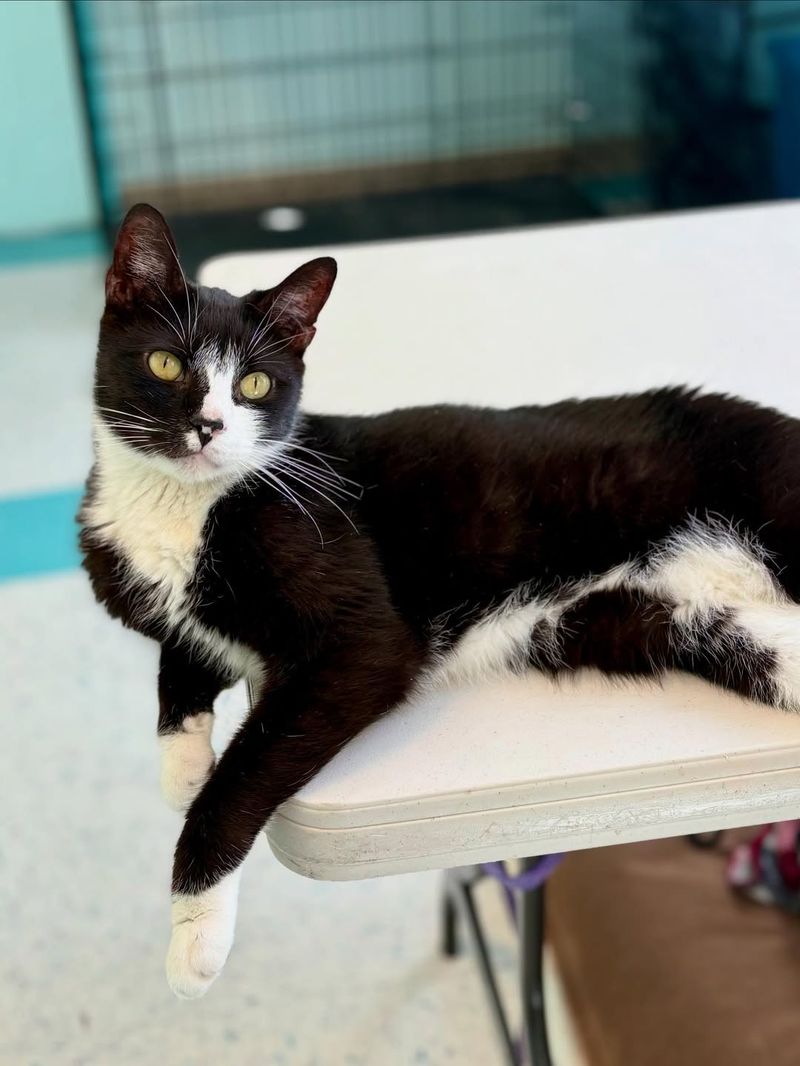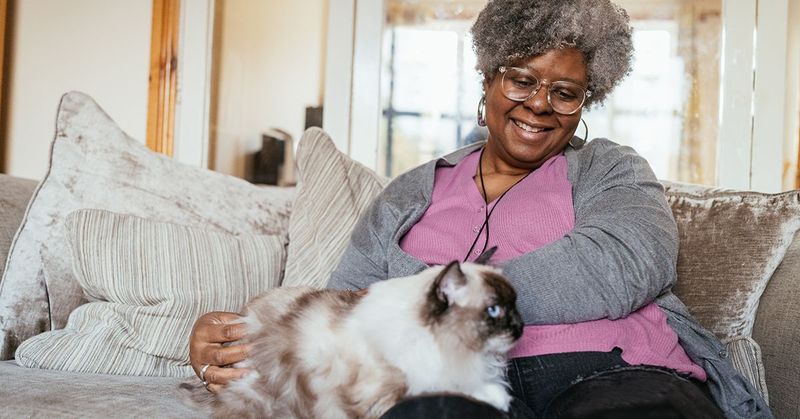📖 Table of Content:
- 1. Low-Maintenance Friendship
- 2. Natural Stress Reducers
- 3. Improved Heart Health
- 4. Built-In Routine Creators
- 5. Loneliness Fighters
- 6. Apartment-Friendly Companions
- 7. Affordable Pet Ownership
- 8. Fall Prevention Partners
- 9. Mental Stimulation Providers
- 10. Independence Matches
- 11. Grief Support Specialists
- 12. Physical Health Monitors
- 13. Sleep Quality Enhancers
- 14. Legacy of Care Continuation
- 15. Conversation Starters
- 16. Adaptable to Changing Needs
- 17. Laughter Medicine Dispensers
Retirement years bring many changes, including more time at home and sometimes feelings of loneliness. Pets can fill these gaps beautifully, with cats being especially suitable companions for older adults. These independent yet affectionate animals offer companionship without the demanding care some other pets require. Let’s explore why our feline friends make purr-fect companions for seniors seeking both joy and practical pet ownership.
1. Low-Maintenance Friendship
Cats practically care for themselves! Unlike dogs that need regular walks regardless of weather or mobility issues, cats handle their basic needs independently. They’re naturally clean, spending hours grooming themselves daily. Litter box training comes instinctively, eliminating the need for outdoor bathroom breaks. For seniors with limited energy or mobility challenges, this self-sufficiency is invaluable. A clean litter box, fresh water, quality food, and occasional playtime are all cats require to thrive, making them ideal companions for those seeking companionship without overwhelming responsibility.
2. Natural Stress Reducers
The gentle purring of a cat has proven therapeutic effects. Research shows this unique sound operates at frequencies between 25-150 Hz, which can lower blood pressure and reduce anxiety levels. Simply stroking a cat’s soft fur triggers the release of oxytocin and serotonin in our brains – natural mood elevators that combat stress. Many seniors report feeling calmer after just minutes of cat interaction. For older adults facing health concerns or life transitions, this natural stress relief becomes especially valuable. No prescription needed – just a furry friend curled contentedly in your lap, offering medicine through purrs and companionship.
3. Improved Heart Health
Cat ownership correlates with healthier hearts! Studies from the University of Minnesota found cat owners show 30% lower risk of fatal heart attacks compared to non-cat owners. The calming presence of feline companions helps regulate heart rhythm and lower blood pressure. Their gentle purring creates a soothing effect that reduces cardiovascular strain – particularly beneficial for seniors already managing heart concerns. Daily interaction with cats also encourages light movement as you play, pet, and care for them. This gentle activity promotes circulation without strenuous exercise. For seniors seeking heart-healthy lifestyle choices, adopting a cat might be one of the sweetest prescriptions available.
4. Built-In Routine Creators
Cats thrive on predictability and help create healthy daily structures. Their consistent mealtime expectations gently prompt seniors to maintain regular schedules – cats simply won’t let you forget breakfast! Morning feeding rituals, afternoon play sessions, and evening cuddles naturally segment the day. This subtle routine-building helps seniors maintain time orientation and purpose, especially valuable after retirement when traditional schedules disappear. Many older adults find that caring for a cat provides meaningful daily responsibilities without overwhelming demands. The predictable rhythms of feeding, playing, and bonding become comforting anchors in daily life, fostering better sleep patterns and overall well-being.
5. Loneliness Fighters
Empty homes feel instantly warmer with a cat’s presence. Their ability to sense when companionship is needed seems almost supernatural – appearing for lap time just when loneliness creeps in. Seniors living alone particularly benefit from the constant companionship cats provide. A Cornell University study found that older adults with pets reported significantly less loneliness than non-pet owners. Beyond physical presence, cats offer emotional connection through their expressive behaviors. From slow blinks (cat kisses!) to headbutts signaling affection, these silent communications create meaningful bonds. Having someone to talk to, care for, and receive affection from transforms solitary homes into spaces of connection and purpose.
6. Apartment-Friendly Companions
Downsizing often accompanies senior years, making compact companions particularly valuable. Cats require minimal space to thrive – a sunny window ledge, cozy sleeping spot, and room for occasional zoomies satisfy their spatial needs perfectly. Unlike larger pets, cats adapt beautifully to apartment living. Their quiet nature means no noise complaints from neighbors, while their indoor lifestyle eliminates yard maintenance concerns. Many senior living communities welcome cats while restricting dogs, recognizing their compatibility with community living. Vertical space utilization through cat trees or shelves allows even small apartments to become feline-friendly environments. For seniors in compact living situations, cats offer full-sized companionship in a space-efficient package.
7. Affordable Pet Ownership
Fixed incomes demand budget-conscious choices, and cats deliver companionship without breaking the bank. Adoption fees for adult cats are typically lower than puppies, with many shelters offering senior-to-senior programs with reduced rates. Ongoing expenses remain manageable too. Cats eat relatively small amounts, with monthly food costs significantly lower than medium or large dogs. Their independent nature means less need for boarding or pet-sitting services during travel. Veterinary costs generally run lower for cats than dogs, especially considering preventative care. Many cats live healthily with annual checkups and basic vaccinations. For seniors balancing companionship desires with financial prudence, cats offer an economical path to the joys of pet ownership.
8. Fall Prevention Partners
Cats offer companionship without becoming tripping hazards – a crucial consideration for seniors concerned about falls. Unlike energetic dogs that might circle underfoot or pull on leashes, cats typically move predictably and avoid being stepped on. Many cats develop sensitivity to their owners’ mobility patterns. They learn to stay clear during walking, often leading the way rather than darting across paths. The absence of leashed walks eliminates a major fall risk that dog ownership presents, particularly on icy or uneven terrain. For seniors using mobility aids, cats respect personal space while still providing companionship. This safety aspect makes cats particularly suitable companions for those with balance concerns or previous fall experiences.
9. Mental Stimulation Providers
Feline antics keep aging minds engaged and active. Their playful behaviors, from batting at toys to mysterious “zoomies” around the house, provide endless entertainment and mental stimulation. Observing cats satisfies our natural curiosity. Their hunting behaviors, grooming rituals, and unique personalities create daily moments of discovery that keep seniors mentally present and observant. Interactive play with cats engages problem-solving skills as seniors figure out which toys their particular cat prefers. Even simple activities like following laser pointers or string toys exercise hand-eye coordination. For seniors seeking to maintain cognitive sharpness, cats offer the perfect blend of entertainment and mental engagement without complicated rules or technology.
10. Independence Matches
Cats mirror the independence many seniors value in themselves. Their self-sufficient nature respects personal space while still offering companionship – a perfect balance for those who cherish autonomy. Unlike needier pets, cats won’t demand constant attention. They’re content to nap nearby while seniors pursue hobbies, entertain visitors, or simply enjoy quiet time. This creates a comfortable relationship without the guilt some feel when dogs appear lonely. Many seniors appreciate that cats allow spontaneity in daily schedules. Brief trips outside the home don’t require elaborate pet care arrangements, as cats manage well with sufficient food, water, and clean litter during short absences. This freedom supports the independent lifestyle many older adults work hard to maintain.
11. Grief Support Specialists
Cats offer extraordinary comfort during times of loss. Their intuitive nature seems to sense emotional distress, often becoming more attentive and physically close when their owners experience grief. For seniors navigating the loss of spouses, friends, or family members, a cat’s steady presence provides stability amid change. They offer physical comfort through purring and touch without requiring explanations or conversation. Many grief counselors recognize the healing role pets play during bereavement. Cats provide unconditional acceptance of tears and sadness while simultaneously demanding enough routine care to prevent complete withdrawal. Their gentle companionship creates space for healing while ensuring seniors maintain essential daily functions during difficult emotional transitions.
12. Physical Health Monitors
Cats possess remarkable sensitivity to health changes. Many seniors report their cats detected health issues before medical diagnosis – from diabetes to cancer – by showing unusual attention to specific body areas or altered behavior patterns. Their routine-loving nature makes them excellent barometers for disruptions. Changes in a senior’s daily patterns rarely escape feline notice, potentially alerting family members to investigate when care routines falter. Beyond detection, cats encourage gentle movement as seniors reach to pet them or prepare their meals. This subtle activity helps maintain joint flexibility and muscle tone without strenuous exercise. For seniors managing chronic conditions, these natural prompts toward mild physical activity contribute significantly to maintaining functional independence.
13. Sleep Quality Enhancers
The rhythmic purring of a cat nestled nearby creates nature’s perfect white noise machine. This gentle sound masks disruptive noises while providing comforting audio feedback that many seniors find helps them fall asleep faster. Cats’ body temperature runs slightly higher than humans – about 102°F – making them natural heating pads for achy joints or cold feet. Their tendency to curl up against owners during sleep provides gentle warmth without the fire hazards of electric blankets. For seniors experiencing nighttime anxiety or insomnia, a cat’s predictable bedtime routine offers psychological comfort. Their calm presence reduces stress hormones like cortisol while promoting relaxation. Many older adults report feeling safer with a cat’s alert senses nearby during vulnerable sleeping hours.
14. Legacy of Care Continuation
Caring for a cat allows seniors to maintain their nurturing roles even as children and grandchildren grow independent. This continued expression of caregiving fulfills deep psychological needs for purpose and contribution. Many seniors find tremendous satisfaction in providing a loving home for a shelter cat, especially older felines often overlooked for adoption. This mutual rescue creates meaningful narrative – two beings helping each other navigate life’s later chapters. Relationships with cats create daily opportunities to express gentleness and compassion. These small acts of kindness – from gentle brushing to preparing favorite treats – allow seniors to practice the caregiving values they’ve cultivated throughout life. This continuity of identity as a nurturing figure supports positive self-image during retirement years.
15. Conversation Starters
Cat anecdotes bridge generational gaps beautifully. Grandchildren who might struggle with conversation topics easily connect through shared stories and photos of feline antics, creating natural communication channels between generations. Social media sharing of cat photos or videos helps seniors maintain connections with distant family and friends. These lighthearted exchanges often lead to more meaningful check-ins and conversations. Cat ownership instantly connects seniors with community resources like veterinarians, pet supply store employees, and other cat enthusiasts. These natural interaction points combat isolation while providing practical support networks. For seniors seeking to maintain or expand their social circles, cats provide both conversation material and pathways to community engagement.
16. Adaptable to Changing Needs
Cats adjust remarkably well as seniors’ living situations evolve. Whether downsizing to smaller homes or transitioning to assisted living, cats typically adapt with minimal stress compared to other pets. Their care requirements can flex with changing abilities. Automated feeders, self-cleaning litter boxes, and delivery services for supplies make maintenance manageable even as mobility decreases. Many senior living facilities recognize these adaptable qualities and welcome feline residents. Should health necessitate temporary hospitalization, cats generally manage separation better than dogs. Their independent nature means they can maintain well-being with minimal caretaker visits until their owners return. This adaptability provides peace of mind for seniors concerned about potential future changes in their living arrangements or care needs.
17. Laughter Medicine Dispensers
Cats are natural comedians with perfect timing. Their unexpected play sessions, curious investigations, and occasional mishaps generate genuine laughter – nature’s best medicine for aging bodies and minds. The unpredictable zoomies across living rooms, determined box-sitting regardless of fit, and dramatic reactions to ordinary household items create daily moments of joy. These spontaneous performances require no tickets or technology. For seniors facing health challenges or life transitions, these reliable sources of amusement provide valuable psychological lifting. Research confirms laughter’s concrete health benefits: improved immune function, pain reduction, and stress hormone decrease. Cats deliver these benefits wrapped in fur, requiring only appreciation of their natural comedic talents.
